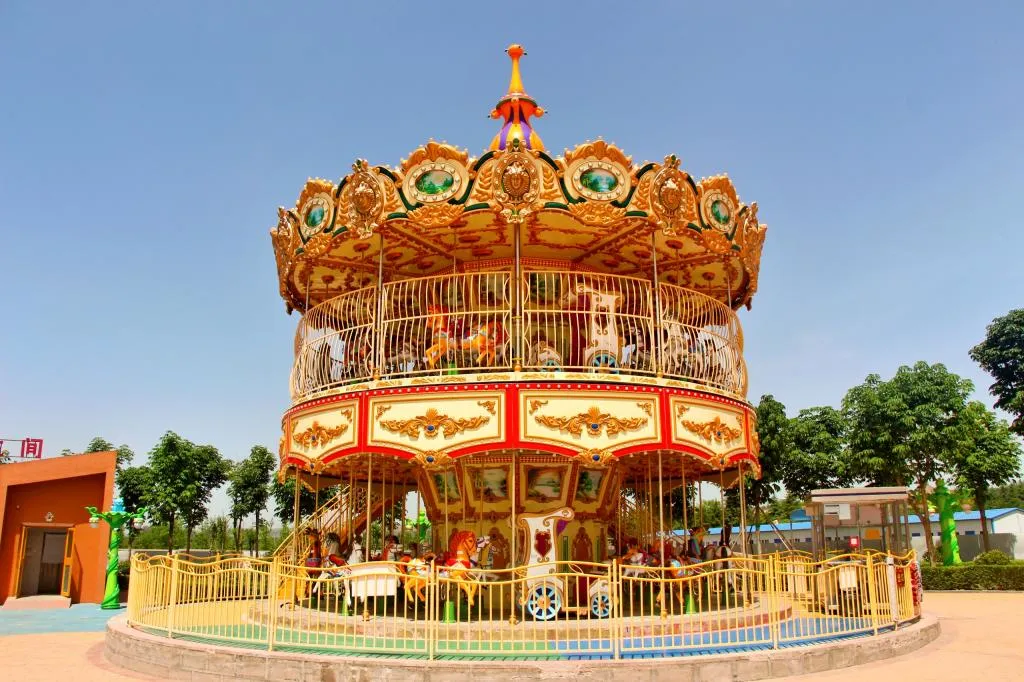- Albanian
- Arabic
- Belarusian
- Bengali
- Czech
- English
- French
- German
- Hebrew
- Hungarian
- Indonesian
- irish
- Italian
- Japanese
- kazakh
- Persian
- Russian
- Thai
- Uzbek
- Vietnamese
roller coaster cart design
The Design of Roller Coaster Carts Engineering Thrills in Motion
Roller coasters are a defining feature of amusement parks, drawing thrill-seekers from around the globe to experience the adrenaline rush of steep drops, sharp turns, and exhilarating speeds. Central to this experience is the design of the roller coaster carts, also known as cars or trains. These carts are meticulously engineered to ensure safety, comfort, and, of course, an unforgettable experience.
Safety First
The foremost priority in roller coaster cart design is safety. Engineers use robust materials such as reinforced steel and specialized composites to ensure the carts can withstand high speeds, sudden drops, and intense lateral forces. Each cart is equipped with multiple safety restraints, which may include lap bars, harnesses, and over-the-shoulder restraints. The design of these safety features is critical. They must securely hold passengers in place while allowing for quick and easy access during boarding and disembarking.
Additionally, the structural integrity of the cart must be rigorously tested. Advanced computer simulations and physical prototypes undergo extensive testing to ensure they can endure not only the forces experienced during a ride but also the wear and tear from constant use over years. This focus on safety not only protects riders but also enhances the overall enjoyment of the ride, allowing individuals to let go of their fears and immerse themselves in the thrill.
Comfort Considerations
While safety is paramount, comfort is also a vital aspect of roller coaster cart design. Engineers strive to create an optimal seating arrangement that maximizes space while minimizing discomfort. The layout can vary significantly based on the type of coaster; some designs feature individual seating, while others leverage two-by-two configurations or even may place riders in a single row.
roller coaster cart design

To enhance the experience, carts often include padded seats and ergonomic designs to keep passengers comfortable, even during intense maneuvers. Additional features such as adjustable headrests or legroom adjustments may also come into play, particularly for coasters designed for all ages. Successfully balancing these elements is crucial, as discomfort can ruin what would otherwise be an exhilarating experience.
Innovations in Design
With the advancements in technology, roller coaster carts have evolved significantly over the years. Modern designs often incorporate elements such as magnetic brakes, which allow for smoother stops, and onboard entertainment systems that engage riders as they await the start of the ride. Some innovative designs even feature interactive components, allowing riders to control aspects of their experience through choices or movements.
One exciting trend in roller coaster cart design is the use of virtual reality (VR) technology. Carts equipped with VR headsets can transport riders into a digital world, enhancing the thrills of the physical ride with additional layers of visual storytelling. The combination of physical motion and immersive VR takes the experience of a roller coaster to new heights, merging reality with fantasy to create unforgettable memories.
Conclusion
The design of roller coaster carts encapsulates a blend of safety, comfort, and innovation, driven by the desire to create thrilling experiences for riders. As technology continues to evolve, we can expect even more exciting developments in cart design that will push the boundaries of amusement rides. Each roller coaster cart represents not just a mode of transportation but a vessel of exhilarating adventures, showcasing the remarkable engineering prowess behind one of the most beloved attractions in theme parks worldwide. The next time you buckle in for a ride, take a moment to appreciate the intricate design that makes your thrill ride possible.
-
Flume Ride-Hebei Zhipao Amusement Equipment Manufacturing Co., Ltd.|Thrilling Water Attraction&Customizable DesignJul.30,2025
-
Flume Ride - Hebei Zhipao Amusement Equipment | Water Coaster, Thrilling DescentJul.30,2025
-
Flume Ride - Hebei Zhipao | Thrilling Water AttractionJul.30,2025
-
Flume Ride: Thrilling Water Attraction by Hebei Zhipao|Log Flume Manufacturers&Flume Ride DesignJul.30,2025
-
Flume Ride-Hebei Zhipao Amusement Equipment Manufacturing Co., Ltd.|Thrilling Water Coaster, Safe DesignJul.30,2025
-
Flume Ride-Hebei Zhipao Amusement Equipment Manufacturing Co., Ltd.|Thrilling Water Attraction, Safe DesignJul.30,2025
